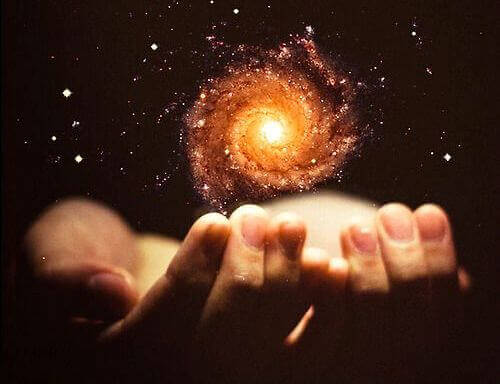When Coincidences Add Up, You're on the Right Track


Written and verified by the psychologist Valeria Sabater
You just know when you’re on the right path. Coincidences begin to line up in your future and your heart fills with satisfaction. You become enthusiastic since all your efforts are finally yielding the results you’ve been craving. At the end of the day, when your mind focuses on what it wants, things don’t happen by chance. They happen by determination.
Everyone has experienced a similar sensation, where almost without knowing how, small events start happening. They may be related to each other. Either way, they seem to fit into our plan.
Mathematicians Persi Diaconis and Frederick Mosteller of the University of California, Berkeley explained in a 1989 study that we shouldn’t pay too much attention to coincidences. They stated that they’re only rare events with low reliability. The two also stated that they almost never help us predict something.
“The more man plans his behavior, the easier it will be for chance to find him.”
-Friedrich Durrenmatt-
Mere coincidence?
However, since the late 1980s, the idea people have of coincidences has changed a lot. Bernard Beitman, a psychiatrist at the University of Virginia, wrote a very interesting book called Connecting with Coincidence where he explains that sometimes these events of chance trace our own destinies.
Edmund Halley, an eighteenth-century English astronomer, realized something. He figured out that other astronomers’ records reported an appearance of certain comets in Earth’s orbit. The astronomers classified the comets as “mere coincidences” whereas, in reality, they weren’t coincidences at all.
Halley ventured to predict that those comets responded to a solitary comet that appeared every 75 years. He guessed correctly. He himself saw that comet pass according to his own calculations on Christmas Eve 1758. Sometimes, several concentrated coincidences can give us a clue to something. We’ll only recognize that something with openness, confidence, and determination.

Determination, movement, and coincidences
When you’re on your way, you have a predetermined goal. Studying for a test, finding resources for a project, finding stability in a problematic relationship, or overcoming a personal problem… All those things require a series of very precise movements directed at the same goal.
At different points in our life cycle, each one of us is obligated to make an effort to trace that plan. We all want to have happiness and stability. It’s part of our sense of self-realization and personal growth. Therefore, an aspect that we can’t and shouldn’t rule out in this part of life is coincidences.
Dr. Josh Tenenbaum is a scientist and cognitive psychologist at the Massachusetts Institute of Technology (MIT). He explains that, although these events sometimes lack any logic and are nothing more than random acts, other times coincidences are as revealing as they are indispensable in our lives.
Coincidences, the mind, and our personal growth
Dr. Tenenbaum explains that coincidences drive many of the inferences in our mind. In fact, our brain is programmed to detect any anomalous and casual stimulus. It tries to make associations to understand that new thing and encourage new learning.
- David Spiegelhalter, a statistician at the University of Cambridge, has spent years studying coincidences. According to the professor, we can only understand coincidences with an adequate statistical analysis.
- It’s through this method that we can realize one aspect: the most striking coincidences have to do with our social relationships. An example of this is when we coincide in different places with the person who will be our future partner. Another example is when we meet someone who coincidentally suggests new projects that we end up being a part of, just when we’ve been looking for a change. Another example is when we perceive how we’re progressing in our personal projects thanks to connecting with other people who share our same goals.
On the other hand, an interesting aspect of Professor Spiegelhalter’s work is that there’s little correlation between wanting something and expecting that event to occur. That’s to say, only when we take action and involve ourselves in different situations can we begin to create those coincidences. If we sit still, nothing will happen.
“In everything that surrounds us and everything that moves us, we must realize that chance intervenes in something.”
-Anatole France-

When you’re on your way, you know…
As we’ve been able to deduce, coincidences are the result of chance. They’re also the result of that impulse we generate with our personal and psychological disposition. All this encourages us to understand certain aspects that are worth reflecting on.
- When you’re on the right path, those events you create and those random events come together and intermingle. An example of this is scientists and researchers. In their daily analysis and experimentation tasks, they often use casual, known facts that allow them to reach amazing discoveries.
- You’re also on the right path when your mind is open to everything going on in your environment. Once you’re aware and have a curious brain seeking to learn and find stimuli, you’ll be able to see life’s true coincidences. These are occurrences that take us where we want to go.
- In turn, another aspect to consider is that there are times when negative coincidences happen in our lives. Two examples are getting sick just the day we have a big event or having a technical failure during our project presentation. As dangerous as these terrible events may be, we should remember that they’re still normal. We should expect bad things to happen in our daily lives.
- A coincidence can be positive, negative, or neutral. What really counts after all is said and done is how we decide to handle that event. The way we do this, our response, our mental focus, and the way we behave after the event is what truly determine our destiny.

Conclusion
To conclude, Albert Einstein said that life itself is a wonderful coincidence. However, knowing how to live it in the best way possible requires firm willpower and receptivity. We should apply this personal outlook. Don’t ignore all the possibilities that gravitate around you every day.
This text is provided for informational purposes only and does not replace consultation with a professional. If in doubt, consult your specialist.








